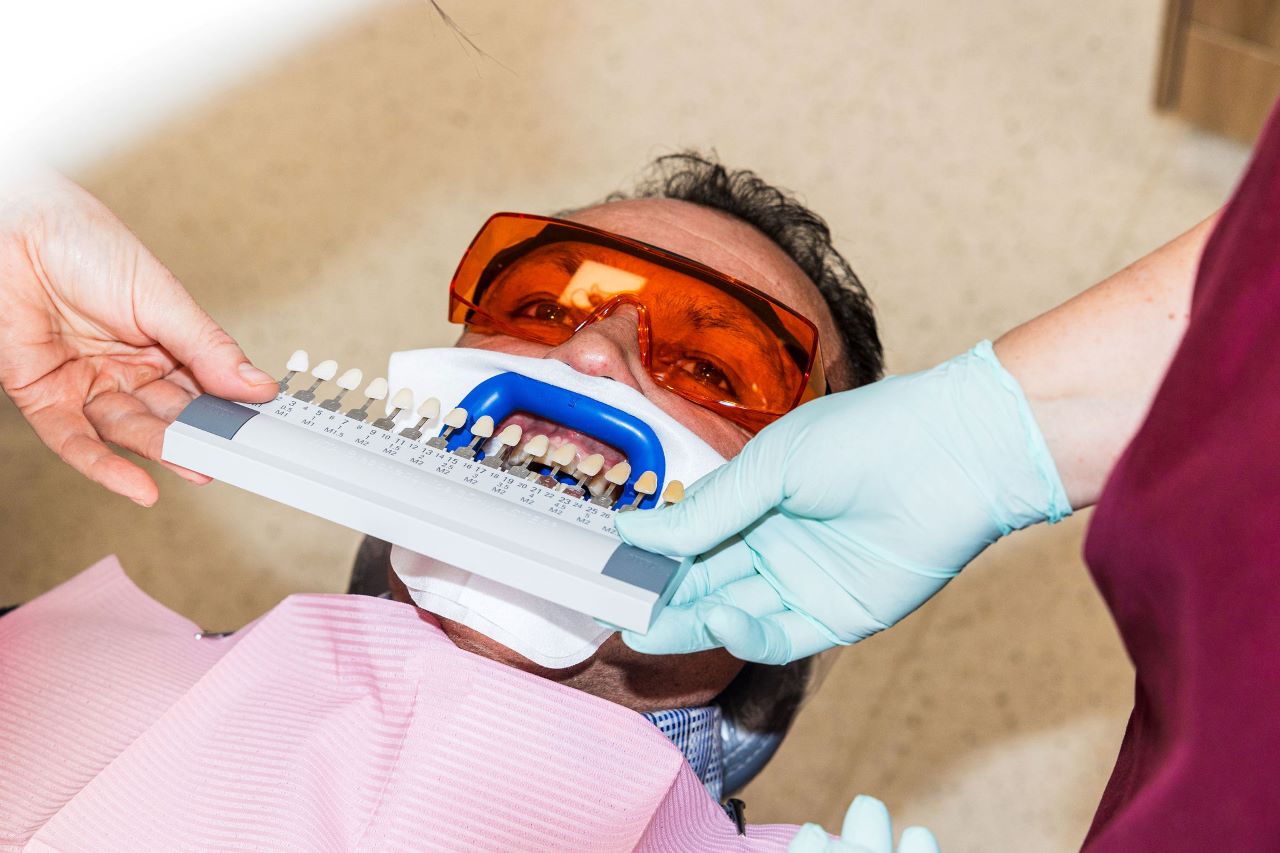If you've got a toothache, you'll want pain relief—and fast!
There are several home remedies for toothache to help manage the discomfort, but nothing is more certain to assist with the toothache than visiting the dentist.
Toothaches can be caused by many different oral health issues. And often, the underlying cause of a toothache may not be resolved with at-home care. This is why it's so important to see your dentist or oral health practitioner whenever you have dental pain. They will be able to get to the bottom of your toothache and recommend the best dental treatment options to stop your tooth pain in its tracks.
What is a toothache?
Toothaches occur when the sensitive nerves inside a tooth become inflamed or irritated. This irritation can create a painful sensation in the teeth, gums, mouth and jaw. Tooth pain can range from mild sensitivity, aching or throbbing to more intense pain that disrupts your day-to-day activities. The pain may be constant or it could come and go. It may even be triggered when eating or drinking certain things, especially hot, cold or sugary foods or drinks.
What causes a toothache?
Many things can cause a toothache, including:
- Dental decay reaching the tooth's inner pulp where blood vessels and nerves are located
- A cracked tooth or broken tooth exposing sensitive inner layers and nerve endings
- Gum inflammation or periodontal disease
- An abscessed tooth or tooth infection
- Wisdom teeth causing pressure on other teeth as they erupt
- Referred pain from issues like sinus infection or jaw pain
Home remedies for toothache
Remember: At-home toothache relief should be considered a temporary measure while you arrange to see a dentist.
If your tooth pain persists for more than 1-2 days, seek professional dental care. Your dentist will be able to provide you with a proper diagnosis and dental treatment plan, clearly addressing the root cause of your pain. Professional assessment and treatment of the underlying cause are crucial to prevent the toothache from worsening.
When determining which remedy might work best for your toothache, there are a few factors to consider. These include:
- The intensity and type of pain
- The location of the affected tooth
- The underlying cause of the toothache
- Any allergies or sensitivities you might have
- Whether there’s visible swelling or infection present
There are several types of toothache remedies available to help manage your discomfort, which we'll explore below.

Soft toothbrush and toothpaste for sensitive teeth
If your toothache is caused by tooth sensitivity, try switching to a soft-bristled toothbrush and fluoride toothpaste that is specially designed for sensitive teeth. This can reduce the sensitivity you feel by soothing the nerves inside the tooth and rebuilding a protective layer over the tooth. If you experience sensitive teeth, it's also helpful to ask your dentist about the correct way to brush your teeth. They will show you how to brush using less pressure or force. When you brush your teeth too hard, this can wear away the gum tissues and expose the sensitive tooth roots, increasing your risk of gum disease.
Saltwater and hydrogen peroxide rinses
Saltwater and hydrogen peroxide rinses are the most common types of home remedies as they’re both easily accessible and provide quick relief. Create a simple saltwater rinse by mixing half a teaspoon of salt in 250ml of warm water. Saltwater acts as a natural disinfectant, helping to clean the affected tooth and fight infection while temporarily reducing inflammation in the gum tissue.
Dilute hydrogen peroxide 50:50 with water to create a rinse. The hydrogen peroxide mixture works similarly to a saltwater rinse, but has stronger anti-inflammatory effects. Hydrogen peroxide can also help to heal oral wounds in the mouth.
Over-the-counter pain relievers
Pain medication like ibuprofen or paracetamol can provide effective at-home toothache management while you wait to see your dentist. Ibuprofen works particularly well for dental pain because it not only relieves pain but also helps reduce inflammation in the affected area. Paracetamol can help with pain management but doesn’t reduce swelling or inflammation. Always follow the recommended dose and consider your medical history and any existing medical conditions before taking any medication.
Remember that while over-the-counter pain medication can provide temporary relief, it won’t fix dental problems. Using medication to mask toothache symptoms may make your dental problems worse in the long run if the underlying cause or issue isn’t addressed.
Get on top of your tooth pain for good.
See us for toothache treatment or get our guide for more information, including fees.

When should you see a dentist for a toothache?
There are certain toothache symptoms that indicate it’s time to seek professional help. Look out for these red flags and see a dentist if:
- Your toothache pain persists for more than a day
- You experience severe pain that isn’t eased by an over-the-counter pain reliever
- You have swelling in your face, mouth swelling, or swollen gums
- You notice discharge around the sore tooth
- You have a fever along with tooth pain
- You’ve experienced trauma or injury to your tooth, mouth or jaw
- You’re having trouble breathing or swallowing (go to your nearest emergency room for immediate medical attention)
You should never ignore a dental abscess, tooth infection or gum infection. If left untreated, these infections can spread to other parts of the body and may cause serious, or even life-threatening, complications.
Why should you see a dentist for a toothache?
Your dentist treats the root cause of your pain, not just the symptoms. When you visit with an aching tooth, your dental practitioner will perform a thorough examination to determine why you’re experiencing oral pain. They might take x-rays to look for signs of tooth decay, check for gum disease, or examine wisdom tooth issues. Once they find the root cause of your toothache, they will be able to present different dental treatment options to resolve the issue.

The treatment plan will address the specific issue causing your pain:
- For cavities and tooth decay: dental fillings to restore the tooth
- For infections: antibiotics and possibly root canal treatment
- For cracked teeth: dental bonding, dental crowns and bridges, or other restorative dental treatments
- For gum infection: deep cleaning and periodontal treatment
- For impacted wisdom teeth: orthodontic treatment to help guide the teeth into correct position or wisdom tooth removal
Regular dental check-ups can help catch oral health issues early before they develop into painful toothaches. By seeing your dentist regularly, you can prevent many causes of tooth pain before they even start.
Remember that while at-home toothache management is great for easing symptoms, only professional dental care can address the underlying causes of toothache pain and prevent recurrence.
The next time you experience that telltale throb of tooth sensitivity or toothache pain, try a home remedy for temporary relief—but don’t delay making an appointment at our Mount Gambier dental clinic or our Port Fairy dental clinic. A severe toothache is a dental emergency so we'll get you in—and get you out of pain—as soon as possible. Plus, with our easy finance options, there's no need to put off treatment for a painful tooth.











.svg)














